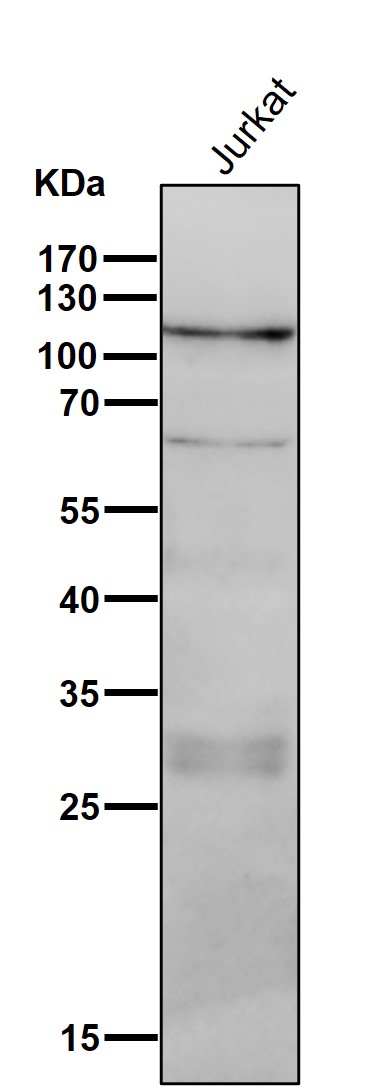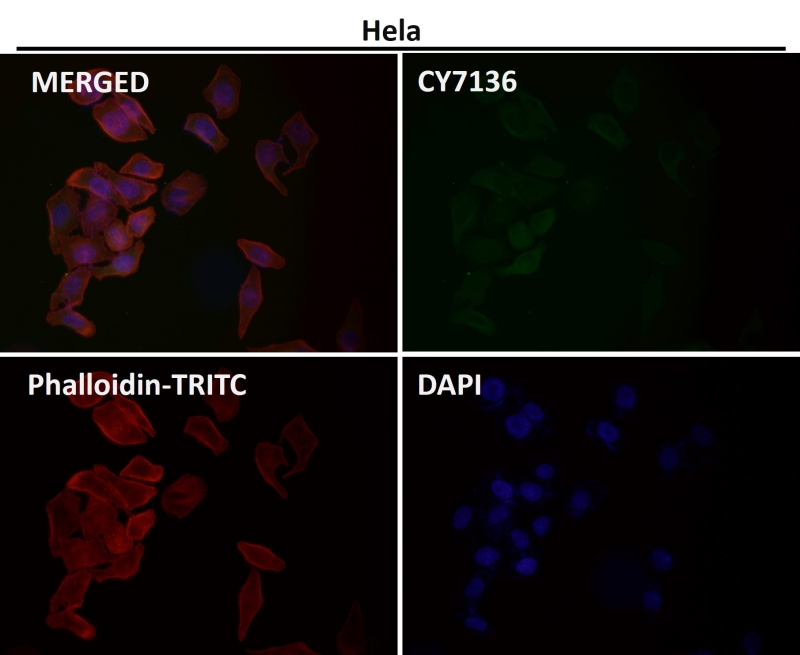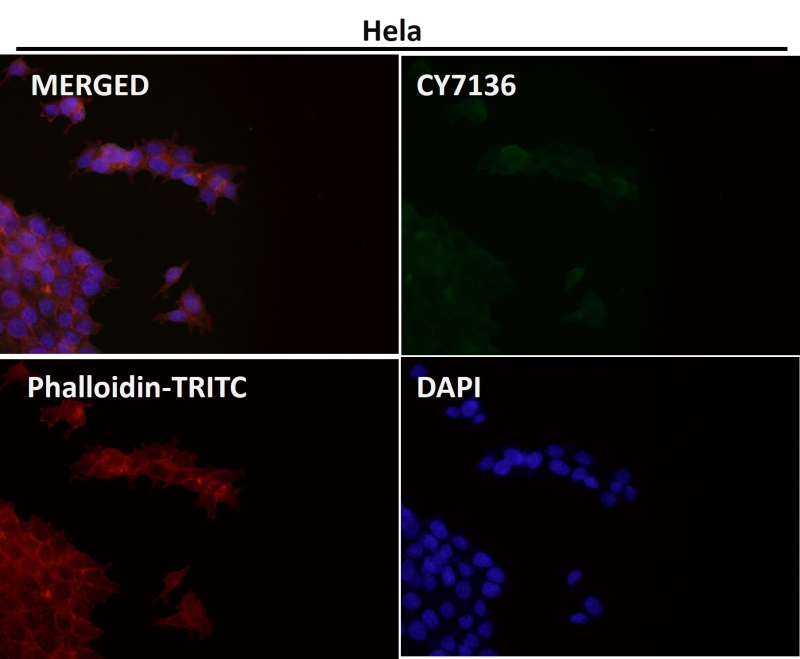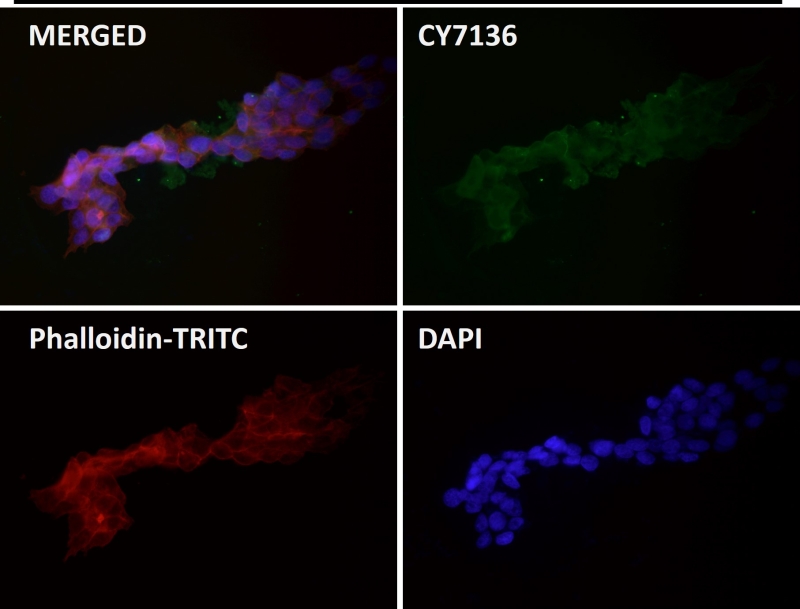





| WB | 咨询技术 | Human,Mouse,Rat |
| IF | 咨询技术 | Human,Mouse,Rat |
| IHC | 咨询技术 | Human,Mouse,Rat |
| ICC | 1/50-1/200 | Human,Mouse,Rat |
| FCM | 咨询技术 | Human,Mouse,Rat |
| Elisa | 咨询技术 | Human,Mouse,Rat |
| Aliases | APDS; GRB1; IMD14; p110dp85a; p85-ALPHA; Phosphoinositide 3 kinase B; Phosphoinositide 3 kinase C; p37delta; PI3 kinase p110 subunit delta; PI3Kdelta; Pik3cd; PIK3R1; PK3CD; PtdIns 3 kinase p110;;PI3 kinase p110 delta |
| WB Predicted band size | 119 kDa |
| Host/Isotype | Rabbit IgG |
| Antibody Type | Primary antibody |
| Storage | Store at 4°C short term. Aliquot and store at -20°C long term. Avoid freeze/thaw cycles. |
| Species Reactivity | Human,Mouse,Rat |
| Immunogen | A synthesized peptide derived from human PI3 kinase p110 delta |
| Formulation | Purified antibody in PBS with 0.05% sodium azide,0.05% BSA and 50% glycerol. |
+ +
以下是3篇关于PI3K p110δ抗体的参考文献(信息基于领域内典型研究方向整理):
1. **文献名称**: *Selective role of PI3Kδ in neutrophil inflammatory responses*
**作者**: Ali K, Bilancio A, Thomas M, et al.
**摘要**: 该研究使用p110δ特异性抗体,在小鼠模型中验证PI3Kδ亚基在嗜中性粒细胞炎症反应中的关键作用,证明其通过调控趋化因子信号通路影响细胞迁移。
2. **文献名称**: *Therapeutic targeting of PI3Kδ in autoantibody-positive rheumatoid arthritis*
**作者**: Randis TM, Puri KD, et al.
**摘要**: 研究者开发了一种人源化抗p110δ单克隆抗体,发现其能选择性抑制B细胞和浆细胞的异常活化,显著改善类风湿性关节炎模型中的自身抗体水平和关节炎症。
3. **文献名称**: *PI3Kδ hyperactivation promotes CD8+ T cell exhaustion in chronic viral infection*
**作者**: Okkenhaug K, Fruman DA, et al.
**摘要**: 通过p110δ特异性抗体阻断实验,揭示PI3Kδ信号过度激活导致CD8+T细胞耗竭的机制,为慢性病毒感染及肿瘤免疫治疗提供新靶点。
注:以上内容综合了PI3Kδ抗体研究的典型方向(炎症、自身免疫、肿瘤免疫),实际文献检索建议通过PubMed等平台以关键词“PI3K delta antibody”或“PI3Kδ inhibitor”筛选近5年高引论文。部分研究可能使用小分子抑制剂而非抗体,需注意区分。
The PI3K p110δ antibody is a crucial tool for studying the phosphoinositide 3-kinase (PI3K) signaling pathway, specifically targeting the p110δ catalytic subunit encoded by the *PIK3CD* gene. PI3Ks are lipid kinases divided into three classes, with class IA PI3Ks (including p110δ) forming heterodimers with regulatory subunits (e.g., p85) to regulate cell growth, survival, and metabolism. Unlike other isoforms (p110α, β, γ), p110δ is predominantly expressed in leukocytes and plays a specialized role in immune cell signaling, including B-cell development, T-cell activation, and neutrophil migration. Dysregulation of p110δ is linked to immune disorders, inflammatory diseases, and hematologic malignancies, such as chronic lymphocytic leukemia and lymphoma.
Antibodies against p110δ enable researchers to detect its expression, localization, and activation status via techniques like Western blotting, immunohistochemistry, and flow cytometry. They are vital for investigating PI3Kδ-driven signaling mechanisms, evaluating therapeutic inhibitors (e.g., idelalisib, duvelisib), and identifying biomarkers in disease models. Recent studies also explore p110δ's role in tumor microenvironments and resistance to targeted therapies. Commercial p110δ antibodies are validated for specificity, often distinguishing it from closely related isoforms, ensuring accurate experimental outcomes in both basic and translational research contexts.
×